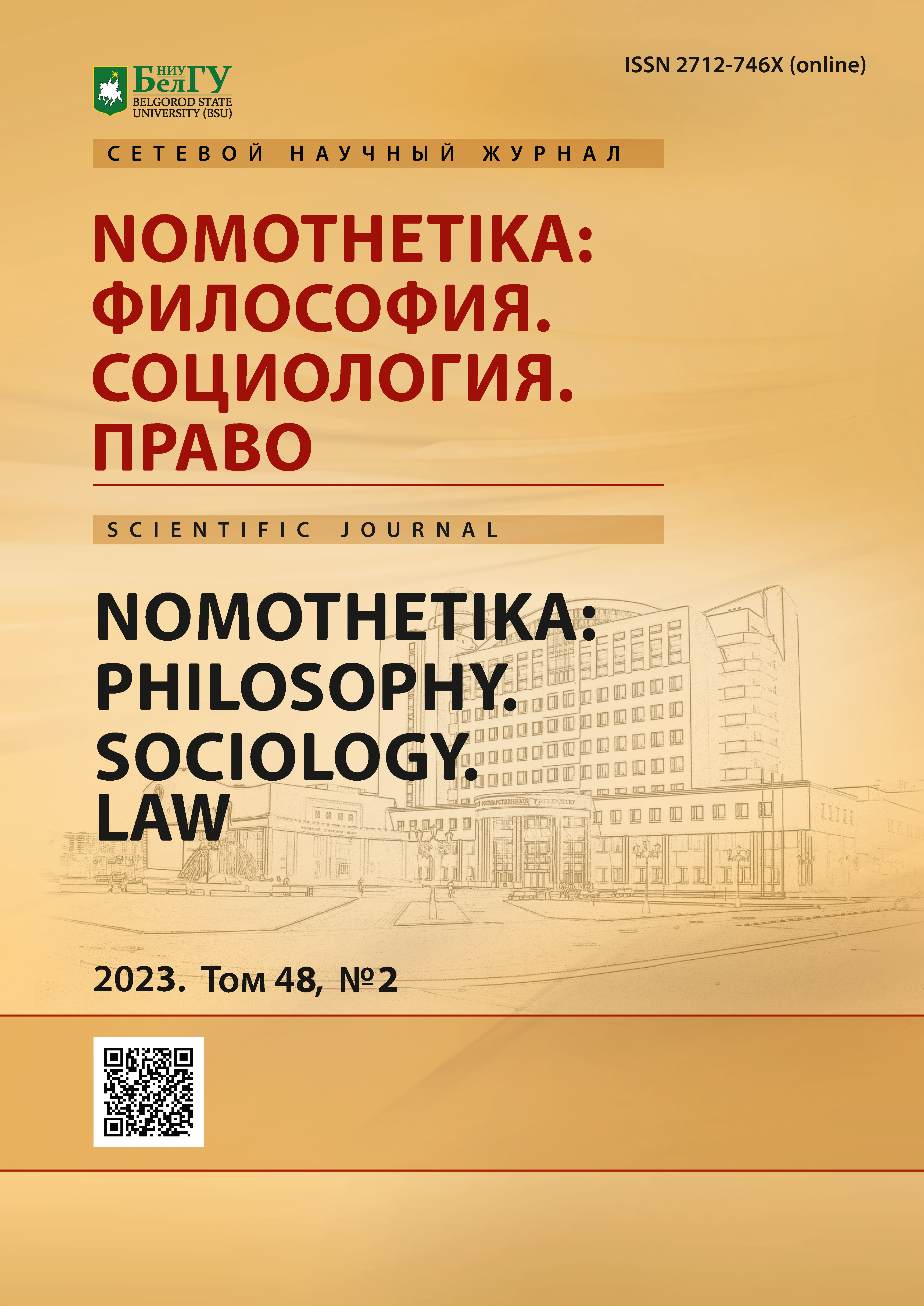Authorship in the Modern Cultural and Technological Context
DOI:
https://doi.org/10.52575/2712-746X-2023-48-2-396-405Keywords:
Author, modern authorship, artificial text, automated text, scriptwriter, automation of creativity, creative potential of AIAbstract
The problem of authorship occupies a significant place in philosophical, cultural and philological research. In the 1960s, a number of post-structuralist ideas expressed by M. Foucault and R. Barth gave the problem an impulse that has survived to our time. However, the explanatory resource of theories that appeared more than half a century ago is not quite suitable for analyzing the situation of authorship in the modern information society. Despite the numerous publications devoted to the author, modern technological aspects of authorship are practically not considered in the framework of cultural and philosophical studies. The purpose of this study is to analyze authorship in the modern cultural and technological context. In the course of the study, the method of ascent from the abstract to the concrete, comparative philosophical and contextual method was used. The study of the cultural and technological aspects of the problem made it possible to identify the main phenomena accompanying modern authorship: subject-object synergy; automation of textual production; moving the center of meaning formation to the reader’s pole.
Downloads
References
Аверинцев С.С. 2006. Автор. В кн.: София-Логос. Словарь. Киев, ББИ: 24-49.
Аверинцев С.С. 1994. Авторство и авторитет. В. кн. Историческая поэтика. Литературные эпохи и типы художественного сознания. М., Наследие: 105–125.
Аверинцев С.С., Андреев М.Л., Гаспаров М.Л., Гринцер П.А., Михайлов А.В. 1994. Категории поэтики в смене литературных эпох. В кн.: Историческая поэтика. Литературные эпохи и типы художественного сознания. М., Наследие: 3–38.
Алексеев А.Ю. 1994. Проблема творчества в исследованиях искусственного интеллекта. В кн.: Эпистемология креативности. М., Канон+: 374–415.
Барт Р. 1994. Смерть автора. В кн.: Избранные работы. Семиотика. Поэтика. М., Прогресс: 384–391.
Басина Н.И. 2003. Проблема автора в культуре: автореф. дис. … д-р. филос. наук: 24.00.01. Ростов-на-Дону, 44 с.
Бахтин М.М. 1979. Эстетика словесного творчества. М., Искусство, 422 с.
Беньямин В. 1996. Произведение искусства в эпоху его технической воспроизводимости. М., Культурный центр имени Гете, 240 с.
Бруссард М. 2020. Искусственный интеллект. М., Альпина нон-фикшн, 362 с.
Булычв И.И. 2021. Искусственный интеллект в зеркале настороженного философского дискурса. Вестник ИвГУ. Серия: Гуманитарные науки. 2: 98–108.
Виноградов В.В. 1961. Проблема авторства и теория стилей. М., Гослитиздат, 614 с.
Давтян М.А. 2022. Проблемы признания искусственного интеллекта одним из объектов авторского права. Вестник науки, 2: 88–94.
Карпенко И.Д. 2001. Искусственный интеллект. В кн.: Новейший философский словарь. Минск, Интерпрессервис; Книжный Дом: с. 442.
Кудряшев А.Ф., Елхова О.И. 2016. Процесс творчества в системах с искусственным интеллектом. Вестник Башкирского университета. 4: 1124–1129.
Лихачев Д.С. 1954. Итоги и перспективы изучения древнерусской литературы в свете задач построения истории литературы. Известия АН СССР. Отд-ние лит, и яз, 13(5): 414–433.
Максимов А.Г. 2021. Искусственный интеллект как автор и соавтор литературного произведения. Вестник ННГУ, 1: 108–110.
Моргунова Е.А. 2019. Охраноспособность результатов художественного творчества, созданных с использованием искусственного интеллекта. Пермский юридический альманах, 2: 264–272.
Пушкарев А.В. 2014. Творчество и искусственный интеллект: постановка проблемы. Гуманитарные, социально-экономические и общественные науки, 12: 93–96.
Стрижаков Е.А., Чирикова М.В. 2019. История и перспективы развития творческих способностей искусственного интеллекта. Известия Лаборатории древних технологий, 2: 248–258.
Феогнид. 1999. Элегии. В кн.: Эллинские поэты VII–III вв. до н. э. Эпос. Элегия. Ямбы. Мелика. М., Научно-издательский центр «Ладомир»: 254–273.
Фуко М. 1996. Что такое автор? В кн.: Воля к истине: по ту сторону знания, власти и сексуальности. Работы разных лет. М., Касталь: 8–48.
Burke S. 2008 The Ethics of Writing: Authorship and Legacy in Plato and Nietzsche Edinburgh, Edinburgh University Press, 256 p.
Burke, S. 1995. Authorship from Plato to the Postmodern: A Reader. Edinburgh, Edinburgh University Press, 384 p.
Fong, G.S., 2008. Herself an Author: Gender, Agency, and Writing in Late Imperial China, Honolulu. Honolulu, University of Hawaii Press, 244 p.
Guptab, M. and P. Mikalefa, 2021. Artificial intelligence capability: Conceptualization, measurement calibration, and empirical study on its impact on organizational creativity and firm performance. Information & Management, 58(3): 103–434.
Kurzweil, R. 2005. The Singularity is Near. New York, Viking Press. 652 p.
Motovilova, D.A., 2019. Prospects of copyright protection of results created by artificial intelligence systems, from the position of American law. Journal of the Court of Intellectual Rights, 23: 56–67.
Nehamas, A., 1986. What An Author Is. The Journal of Philosophy, Eighty-Third Annual Meeting American Philosophical Association, Eastern Division, 83(11): 685–691.
Neubauer, A.C., 2021. The future of intelligence research in the coming age of artificial intelligence – With a special consideration of the philosophical movements of trans- and posthumanism. Intelligence, Elsevier, 87.
Ramamoorthy, A. and R. Yampolskiy, 2018. Beyond Mad?: The Race For Artificial General Intelligence. ITU Journal, ICT Discoveries, 1 (Special Issue).
Abstract views: 225
Share
Published
How to Cite
Issue
Section
Copyright (c) 2023 NOMOTHETIKA: Philosophy. Sociology. Law

This work is licensed under a Creative Commons Attribution 4.0 International License.


